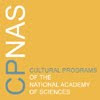From:Richard Wingate
Date: Tue, 13 Mar 2007 11:16:05 -0400 (EDT)
Hi Jill,
Really racing to catch up with this fascinating symposium - if I can return toyour questions (of many days ago)...You mentioned the use of metaphor (visual and written) and the differences in their use in arts and science. I'd agree that there is a lack of training of science researchers in the use of a visual language, at least (maybe not quite the same thing). To me this gives free rise to a fascinating absorption and recycling of stray elements of visual culture in visual scientific presentation. This contrasts with the written science research paper, which in its ideal form, is a highly disciplined and sparse form of literature, entirely free of metaphor (well, that's the idea at least). Perhaps this is the origin of the ambiguity you've identified - we formally reject metaphor within primary written research but bask in the pleasure of a poorly balanced visual metaphor given the opportunity.
In answer to your points:
-I think that scientists would enjoy explicitly confronting the poetic motives behind what they produce. A comparative scientific and an artistic appreciation of an identical set of events might come up with parallel models thatcomplement and define each other. I suspect that, in any case, we use thisprocess of poetic/literal comparison in interpreting what we see - even if wecouch these interpretations formally within a more austere language.
- Successful Art-Sci collaborations are indeed a dicussion of metaphor, butI'm not sure that a resultant artwork would ever be judged purely within ascience arena. My utilitarian stance would be that the value of the exercisecame within the process. I'm not sure which part/element of science is able tojudge or afford respect to the product - an artwork that was useful to sciencemight fail in so many other ways...
to post a response, click on the "comment" button below
to return to the main page, to go www.visualcultureandbioscience.org
Subscribe to:
Post Comments (Atom)

No comments:
Post a Comment